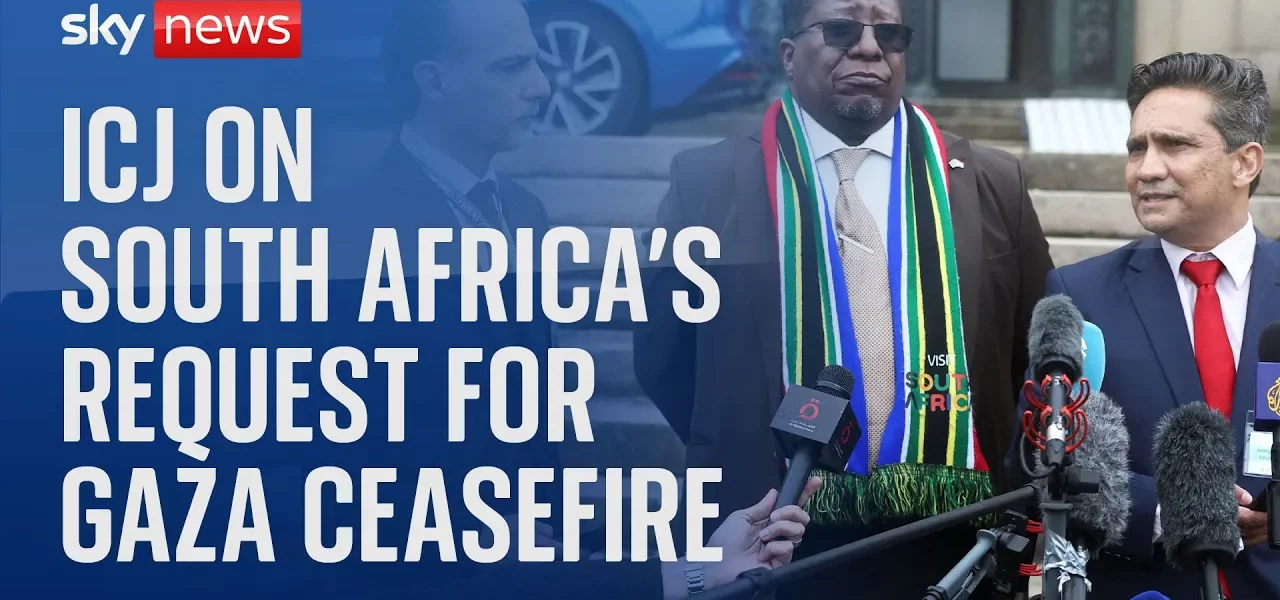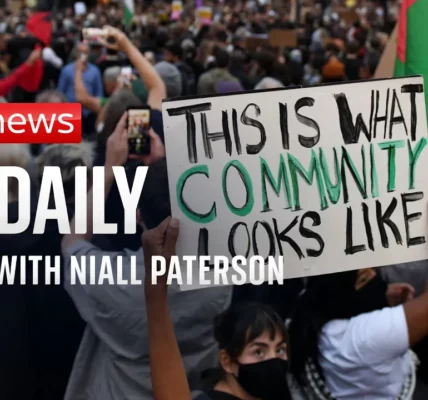South Africa vs Israel: Court Proceedings on Genocide Convention Violations

This article provides a comprehensive overview of the ongoing legal proceedings between South Africa and Israel concerning allegations of genocide violations in the Gaza Strip, highlighting key developments, provisional measures, and the humanitarian crisis faced by the Palestinian population.
Introduction
The legal battle between South Africa and Israel over alleged violations of the genocide convention has garnered significant international attention. Following a series of military operations in the Gaza Strip, South Africa filed an application in December 2023, seeking to address what it described as grave humanitarian concerns and violations of international law. This article delves into the procedural history, the arguments presented, and the court’s responses, shedding light on this complex legal matter.
Background of the Case
The proceedings commenced when South Africa filed an application on December 29, 2023, claiming that Israel had violated the Genocide Convention in its military actions in Gaza. This application included a request for provisional measures, which the court addressed in subsequent hearings.
Initial Proceedings
On January 26, 2024, the court indicated provisional measures aimed at protecting the rights claimed by South Africa. The court’s decision was based on the assessment of ongoing military operations and their humanitarian implications.
Subsequent Applications for Provisional Measures
- February 12, 2024: South Africa urged the court to take urgent action due to worsening conditions in Rafah.
- March 6, 2024: A request was made to modify existing provisional measures.
- May 10, 2024: South Africa submitted an urgent request to modify and indicate new provisional measures.
Key Legal Considerations
Jurisdiction and Plausible Rights
The court has consistently maintained that it holds jurisdiction under Article 9 of the Genocide Convention. It has found that the rights claimed by South Africa, particularly regarding the protection of Palestinians from acts of genocide, are plausible and warrant further consideration.
Assessment of Humanitarian Impact
- The military operations have resulted in significant civilian casualties and infrastructure damage.
- Prolonged displacement of the Palestinian population has exacerbated the humanitarian crisis.
- The court has noted the deteriorating living conditions and the urgent need for humanitarian assistance.
Provisional Measures Indicated by the Court
In response to the evolving situation, the court indicated several provisional measures aimed at mitigating the humanitarian crisis and ensuring compliance with international obligations.
Key Provisional Measures
- Israel is required to immediately halt military operations in Rafah to prevent conditions that could lead to physical destruction of the Palestinian population.
- Unhindered access for humanitarian assistance must be maintained, particularly in the Rafah area.
- Israel must facilitate access for international investigative bodies to gather evidence related to allegations of genocide.
Implementation and Compliance
The court emphasized that these provisional measures carry binding legal obligations. Israel is mandated to report on compliance within a specified timeframe to ensure accountability and transparency.
The Humanitarian Situation in Gaza
The humanitarian crisis in Gaza has reached catastrophic levels, exacerbated by ongoing military offensives. The court has highlighted the severity of the situation, noting significant displacement and lack of essential services.
Current Challenges Faced by Civilians
- Massive displacement of over 800,000 individuals due to military operations.
- Severe shortages of food, water, and medical supplies exacerbated by the continued conflict.
- Destruction of infrastructure, including hospitals and shelters, further endangering civilian lives.
International Response and Concerns
International organizations and humanitarian agencies have raised alarms about the conditions in Gaza, emphasizing the need for immediate humanitarian access and protection of civilians under international law.
Conclusion
The proceedings between South Africa and Israel represent a critical moment in international law, particularly regarding the enforcement of the genocide convention and the protection of human rights. The court’s indications of provisional measures underscore the urgent need for compliance to prevent further deterioration of the humanitarian situation in Gaza. As the situation evolves, ongoing monitoring and international advocacy are essential to ensure accountability and protect vulnerable populations. We encourage readers to stay informed and engaged with developments in this significant legal and humanitarian issue.
For more insights and updates on international law and humanitarian issues, please explore our related articles.
“`




